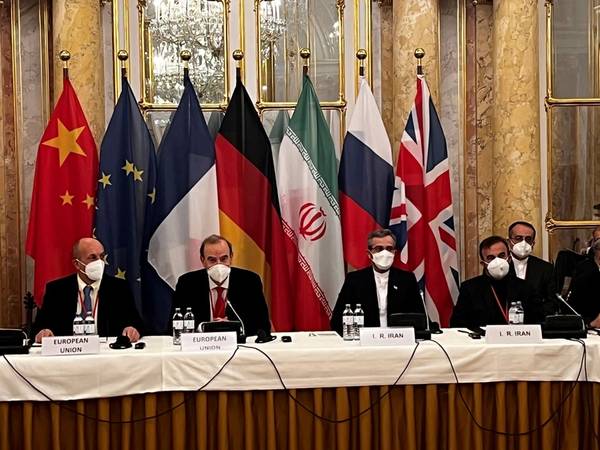Another member of President Joe Biden’s Iran negotiating team has resigned amid growing criticism at home and abroad of an impending nuclear deal with Tehran.
Dan Shapiro, who served as US ambassador to Israel during the Obama administration and is a specialist on US Middle East policy, has left the Iran team led by Special Envoy Rob Malley after just seven months, Haaretz reported on Tuesday.
This follows the departure of sanctions expert Richard Nephew in December and two other members of Malley’s team. Although Shapiro has not expressed any misgivings about the way the nuclear talks have been handled in Vienna, Nephew in February disclosed in a series of tweets that he stepped down from his post “due to a sincere difference of opinion concerning policy.”
On Monday, Senator Chris Coons, a close supporter of President Joe Biden told Iran International he was apprehensive over the possibility that the US might remove Iran’s Revolutionary Guard from its list of Foreign Terrorist Organization (FTO). He also expressed deep misgivings about Iran’s regime, saying that its behavior on several fronts has become worse in the last two years.
Senior Republican Senator Lindsey Graham told Jewish insider on Monday that an Israeli strike on Iran appeared to be the most likely way to stop Iran from acquiring nuclear weapons. He ruled out that the Islamic Republic’s Supreme Leader Ali Khamenei would have a “change of heart” and using sanctions, although to an extent effective, could not guarantee the same outcome.
“If you don’t [understand] that, you’re making a huge mistake,” Graham told Jewish Insider. “This is never going to end short of a nuclear weapon unless somebody stops them.”
The Senator explained that he is putting together legislation that would require a close watch on Iran’s nuclear activities and a report to US Congress every 120 days about any “weaponization efforts, missile technology, proliferation and violations of International Atomic Energy Agency inspection regime.”
Graham maintained that if any Iranian deviation toward weaponization is observed, the White House would be required to come up with a plan to stop it.
Despite the recent ‘Negev Summit’ where Secretary of State Antony Blinken tried to show a mood of unity with Israel and Arab states that have normalized ties with Israel, deep concerns regarding the Biden Administration’s Middle East policies persist.
In an opinion piece published by the Jerusalem Post on Tuesday, Mohammed Alyahya, a Saudi researcher with the Hudson Institute argued that there is a serious “crisis” between Washington and Riyadh, smacking of a “divorce”.
Alyahya argued that since former president Barack Obama agreed to the 2015 Iran nuclear deal, the JCPOA, it became clear to Saudis that the US was abandoning its 70-year policy of protecting allies in the region. He agreed to a flawed deal in exchange for releasing billions of dollars to Iran’s Revolutionary Guards who arm militants around the region.
President Biden’s pursuit of renewing the JCPOA, which Donald Trump abandoned in 2018, is a continuation of the same Obama policy – or worse, Alyahya maintained.
Although his assessment might sound pessimistic, but a large-scale drone and missile attack om Saudi oil installation by Iran-backed Houthi forces past week inevitably reinforces the perception of a weak or indecisive US posture toward the Islamic Republic.
Historically, any threat to Middle East oil production would have solicited a decisive response from Washington – during the Cold War or in the following years. The swift and massive US reaction to Saddam Hussein’s invasion of Kuwait was a solid proof for regional counties.
